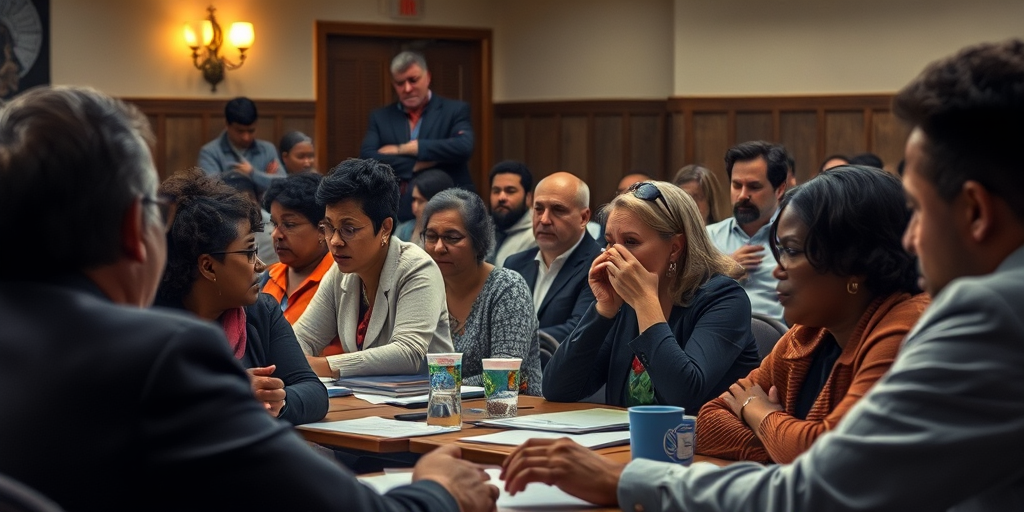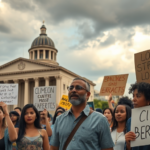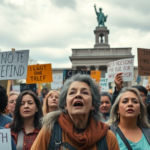Brookline School Committee Rejects Six-Figure Gift: Equity Office to Remain Closed
The Brookline School Committee’s decision to reject a substantial $188,455 donation, intended to partially revive the district’s equity office, has ignited a community-wide debate. In a 6-3 vote, the rejection underscores the complex interplay of policy adherence, community initiative, and the pressing national discourse on diversity, equity, and inclusion (DEI) funding.
The Decision and Its Ramifications
The voted-down proposal would have allocated the funds, raised by a coalition of Brookline groups, to finance an assistant director and several “equity lead” positions within its schools. This office, eliminated in March to manage budget constraints for the fiscal year 2026, brought attention to broader social and educational divides both locally and nationally.
With the rejection, the equity office, which had been in a state of uncertainty since March, faces permanent closure, ending prolonged discussions about its role and effectiveness in fostering educational equity in the district.
Background: A Contentious Atmosphere
The initial elimination of the equity office earlier this year did not occur in isolation; it mirrored a national trend of slashing DEI funds, fueling political contention. This fiscal decision instantly became a lightning rod issue, prompting dialogues across Brookline about the significance and efficacy of educational equity initiatives.
Jesse Hefter, a key voice against accepting the funds, emphasized the risk of private donations dictating district policy. “We are setting a dangerous precedent that could allow community-raised funds to determine our programming direction,” Hefter argued, referencing the district’s existing policy on grants, which prefers unrestricted gifts.
Diverging Perspectives Within the Committee
The decision accentuated internal divisions within the School Committee itself. Mariah Nobrega, a proponent of accepting the donation, argued that the office’s revival aligned with the school district’s strategic priorities of addressing racial and educational disparities. “At a time when the nation is witnessing challenges to equity initiatives, preserving this office is crucial,” Nobrega contended, underscoring how national movements could influence local policies.
Members like Andy Liu, who once chaired the committee, faced the intricate balance between personal conviction and policy mandates. Liu acknowledged the valuable contributions of the equity office but voted against the funds to maintain policy consistency. “It’s difficult, but staying true to our established policies is necessary,” he remarked.
Community Repercussions
For the community, this decision resonates well beyond administrative corridors and impacts the daily dynamics of school environments. Raul Fernandez, a community leader and executive director at Brookline for Racial Justice and Equity, criticized the move as lacking foresight and operational strategy for tackling racial disparities and identity-based challenges. “This leaves us without a structured plan to address pressing educational inequalities,” Fernandez stated, highlighting concerns over identity-based bullying and harassment.
The divide is not merely within the committee but pervades through Brookline’s community fabric, where residents hold sharply differing opinions on educational equity initiatives’ practicality and necessity.
Linking to Broader Issues
This decision is not an isolated local affair but part of a larger narrative reflecting nationwide reevaluations of DEI budgets and policies. Brookline’s experience mirrors questions faced by districts across the country: how to sustain meaningful initiatives in the face of budgetary limitations and evolving societal priorities.
The broader implications might influence how other school districts handle similar tensions between policy adherence and community-driven initiatives. Moreover, the outcome could lead to grassroots mobilizations or alternative strategies for achieving educational equity within limited means.
Balancing Community Interests and Policy
Finding a middle ground that respects policy frameworks while being responsive to community initiatives remains a significant challenge for Brookline’s school administration. Observers suggest that open dialogues with stakeholders, including parents, educators, and students, might foster a clearer understanding of shared goals for educational equity.
Future solutions might involve reevaluating funding models to support sustainable DEI programs or establishing task forces to bridge gaps left by the equity office’s closure.
Resources for Further Engagement
For residents seeking further engagement or information, Brookline’s School Committee plans to facilitate additional hearings for community feedback. Additionally, local advocacy groups continue to offer platforms for discussion, aiming to cultivate a well-informed and active community partnership.
With emotions running high on both sides, the decision’s impact on Brookline’s educational landscape highlights a critical chapter in its pursuit of equitable learning environments, emphasizing the importance of aligning policies with the community’s evolving aspirations.
As Woke News continues to cover these developments, it remains a vital conduit for residents eager to understand the local impact of national educational discourses, ensuring the community’s voice and concerns persist in public forums.







